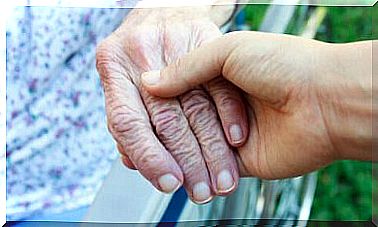Passive-aggressive Personality Disorder – What To Do If Ambiguity Is Commonplace

Your partner doesn’t want to go to the event you were invited to at first, but eventually agrees. He chases for so long that when he is finally ready to leave, the celebration is almost over.
This type of behavior is typical of people with passive-aggressive personality disorder.
It is much more common than one might imagine. It is very difficult to detect because people with passive-aggressive personality disorder are distant and confusing.
How do people with passive-aggressive personality disorder behave?
People with passive-aggressive personality disorder defy external demands through their behavior. They are passively indifferent to the essential and reasonable demands that everyone usually has to accept in their daily lives.
It is very difficult to get along with people with passive-aggressive personality disorder because they try to avoid taking responsibility at any cost. They want to forget stellar duties and responsibilities or make them their last priority.
For example, if they are to bring a dish to a party, they only leave to buy it when all the other guests have already sat down at the table to eat. Their actions thus manifest extreme indifference to agreed practices and other people.
People with passive-aggressive personality disorder tend to be demanding, addicted, lonely, and insecure. They are duplicitous, perplexing between two extremes and thus causing confusion around them. They are manipulative, pessimistic and vulnerable.
In addition to this, they refuse to look at themselves critically or take responsibility for their actions. They come up with all sorts of excuses and excuses to absolve themselves of their responsibility for the reprehensible act by all available means, so that the escape of responsibility goes even ridiculously.

Ambiguous communication and repressed anger
People with passive-aggressive personality disorder have a big difference in what they say and what they do. Indeed, it is almost impossible to know how they feel inwardly because they either do not show their feelings at all or instead show two completely opposite feelings at the same time.
Imagine your partner telling you, “I don’t love you anymore. It is over now.” After which he shouts at you, “Never leave me! I can not live without you!” Communication between people with passive-aggressive personality disorder is always ambiguous and indirect.
Usually when people are bothered by something, they mention something about it to others and try to fix it. Unlike other people, people with passive-aggressive personality disorder do not do this. Instead, they keep the things that bother them inside and act as if nothing had happened. Deep down, they are still furious.
They seem obviously adaptable, even though they are full of anger. They never express their anger or resentment because they think it is a completely inappropriate feeling. They suppress their negative feelings because they are unable to express them in a natural way. In fact, they cover up their negative feelings so well that no one around them even notices that they are bothered by anything at all or even that they are hurt, even though they are actually in full rage.
People with passive-aggressive personality disorder seem warm, approachable, easy-going, and comfortable, but deep down they are jealous, vengeful, and angry.
Excitement and stubbornness
Passive-aggressive personality disorder makes people reserved, suspicious, and isolated from others. They are unable to control their negative feelings but are easily irritated and irritated.
They feel constantly misunderstood. Therefore, they tend to act hostilely, cynically, and stubbornly. Their projections reach such proportions that the more sensible explanations you give them, the more they feel like victims.
People with passive-aggressive personality disorder are also disrespectful and tend to reject other people’s suggestions because they want to defend their independence.

Responsibility and control
For people with passive-aggressive personality disorder, it is very important that the people around them do not get what they want. For them, the external impression is everything in everything. Even if they make you believe that they support you and are always there for you, their actions speak of something completely different. They never give what is asked of them.
Because they don’t want to answer anyone for anything, they also don’t believe in the deadlines set for them. If you give them a deadline by which you want them to finish something, the general rule is that they don’t meet it. They prefer to do things in their own way and on time without being pressured or forced to do something.
This fact significantly affects their performance at work. If their supervisor asks them to complete the report by the next morning, it will not be ready on time. People with passive-aggressive personality disorder don’t even try to explain why they didn’t report. They let time go by until they themselves want to do that task.
In some cases, they come up with a story or manipulate some information to free themselves from the situation.
Causes of passive-aggressive personality disorder
Although experts are not entirely sure, many of them believe that the causes of passive-aggressive personality disorder are a mixture of biological and environmental factors. Problems with self-confidence, attachment, family dynamics, and learned behaviors can all lead to a disorder in a person’s childhood.
Child abuse, disproportionate punishment, and psychoactive substance abuse in adolescence can also predispose to passive-aggressive personality disorder. Other factors that contribute to passive-aggressive personality disorder include ADHD, stress, depression, bipolar disorder, many other personality disorders, and multiple addictions.

How to deal with a person with a passive-aggressive personality disorder?
As we have already noticed, it is not easy to face or respond to the behaviors of a person with passive-aggressive personality disorder because they make other people feel powerless.
If you need to be in close contact with people with passive-aggressive personality disorder, you should try to avoid getting them in a bad mood too.
Instead, you should strive to respond kindly to the behavior of these individuals. If you are positive and optimistic, you understand humor and only discuss general topics, you will be able to avoid the negative impact of their personality on yourself.
If you have enough influence over them, it would be best if you could get them to seek psychological treatment. The psychotherapist seeks to reduce their anger and frustration by teaching them effective coping techniques. A person with a passive-aggressive personality disorder should learn to look at the world more objectively and confidently and solve problems in an effective and healthy way.









